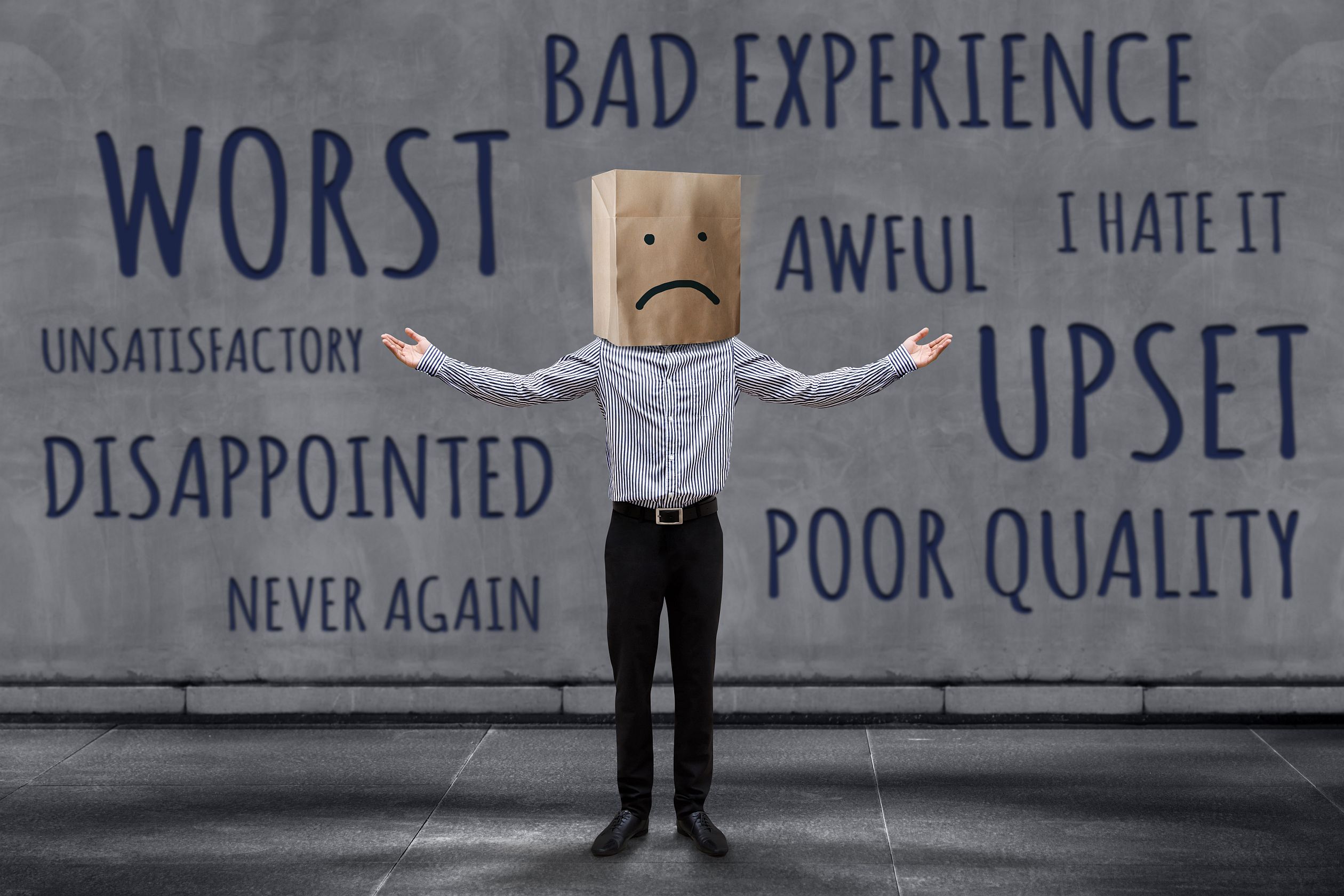Page 2
Links to sections in page 2 (tap to open)
Hidden Condition # 5
Some Homeowners Report Feeling Financially Trapped in Their Investment in the Immovable Home
Compare having a house permanently placed on someone else’s land to apartments where it is easier to move out. Or compare with site-built homes which usually have a market and homeowners can freely choose who they sell to. When the park owner, often a local mom-and-pop type, balances profit with good business values, his customers are often unaware of their fundamental vulnerabilities.
Trapped feelings can increase if the landlord suddenly raises costs on his customers or infrastructure breaks down, making residents feel urgent to find security. One way to reduce risk is to sell the home and leave the park. But mobile home owners may have to take a steep equity loss because the number of buyers may decline when rent is raised too high.
Hidden Condition # 6
Mobile Home Land-Lease Contracts May Be Hard to Understand
Some mobile home owners report that they were unaware of what was missing from their rental agreements and unaware of prevailing laws. Years after signing their lease, they find out they had agreed to allow things they now object to. Some legal experts report that the land-lease agreements can be contracts of adhesion (non negotiable, take-it-or-leave-it) and are similar to triple-net leases that are typically used for business-to-business agreements and rarely used for consumers. Relatively obscure lease clauses may allow the landlord to pass unexpected costs to renters, such as insurance, taxes and community improvements.
It takes four areas of knowledge to understand mobile home lease contracts and what you are actually getting into. One is the law, another is the business practices of landlords, the third is the practices of government, and the fourth is citizenship – civic involvement in democracy. It appears that too many mobile home owners do not have enough experience in all these realms – mobile home parks are complex.
To be fair, in a consumer society it is easy to let civic responsibilities slip. But too often there are prices to pay for this weakness, especially for vulnerable minority groups. Mobile home land renters are a minority, about 5% of the US population. This is not a large enough consuming and voting block to get respect and protection. As a minority group, mobile home land renters should recognize their vulnerability and organize as a group to advocate for themselves. Unfair and biased government and business practices often hit minorities harder than the larger population. This problem can be decreased when homeowners are involved in civic action and advocacy.
Homeowners are at a disadvantage when they don’t understand the complexities of their leases. Homeowners often don’t understand the mobile home park business they depend upon. Lease clauses may not be recognized for what they are if the homeowner is unfamiliar with park business practices. Clear, full disclosure of homeowner liabilities and risks is needed. Rental registries are needed to help consumers evaluate a particular landlord’s business practices.
Hidden Condition # 7
Your Life Depends on Good Park Infrastructure – What Condition Is It In?
Mobile home owners are utterly dependent upon the condition of the park infrastructure – the reliability of its maintenance and upgrade schedules. There are two kinds of infrastructure; the visible infrastructure; the streets, the lighting, the fire extinguishers, the ditches, walls, the amenities and so forth. Then there is the invisible infrastructure; the buried pipes and wires, the water, the sewage, the electricity, natural gas, electrical cables and storm drain system.
It’s easy to see and appraise the condition of the visible infrastructure but not the invisible infrastructure. When the invisible infrastructure fails, it becomes an urgent situation, perhaps an emergency. Yet, there are few ways a homeowner can predict such failures. That is why homeowners need to know the age of their infrastructure and the landlord’s upgrade and maintenance schedule so they can estimate the security of their housing.
By comparison, tax-paying citizens can view the public reports on their city’s municipal infrastructure – its condition and maintenance schedules. But mobile home park homeowners are comparatively in the dark about the age and condition of the hidden private infrastructure their homes depend upon. Homeowners may receive verbal assurance from landlords that all is OK, nothing to see here, but they may not receive credible reports from independent infrastructure experts. Seldom do residents know the extent of their landlord’s commitment to infrastructure upgrade and maintenance. Usually, there are no infrastructure lifecycle schedules provided to help them estimate their true housing risks.
Homeowners need periodic capital investment in the park to maintain the infrastructure. Here is a study that explores the need for attention to mobile home park infrastructure. Homeowners need quality park staffing and commitment to ongoing maintenance. If these requirements are not met, the health and quality of the park may deteriorate affecting the reliability, safety and cash value of the homes.
A regular site-built home sale may require that the seller disclose all known issues with the house. Even mobile homes can be inspected by professionals with written reports available to buyers. But there are few full disclosure requirements about the landlord, his business practices and physical condition of the entire mobile home park infrastructure. Also invisible are the landlord’s maintenance and upgrade schedules and budget for these crucial items, if they exist at all. If a park owner decides to save money by skimping on infrastructure duties, will the homeowners know their risk is increasing?
A few governments may attempt to visually inspect the health and safety of mobile home parks but they do not include the business practices and policies of the landlord, nor his long-term plans that affect homeowner security. Government oversight of park infrastructure has been reported to be spotty, at best. Inspection of underground infrastructure and utilities may require time and resources a visual inspector does not have. It may be up to the landlord to act responsibly and have his park deeply inspected by qualified professionals. Then, ideally, he would inform his customers with regular reports. This ideal situation is rare. Most homeowners must hope that all is well with the vital infrastructure they depend upon.
This video shows common health and safety issues that mobile home owners may allow to develop on their rental lot. Because these problems are the responsibility of the homeowner, repeated violations can lead to eviction from the park. The video covers violations by California mobile homeowners (the customers) but does does not give equal attention to the landlord’s responsibilities.
Some landlords maintain their parks well. They regularly monitor their streets and amenities and also note homeowner violations of park rules by issuing warnings. Only the landlord can enforce park rules and force homeowners to maintain their rental lot and house exterior. However, the State of California offers the below video to help homeowners avoid being cited by the State – which can happen when the landlord does not enforce minimum rules against homeowner negligence. A good landlord will establish and consistently enforce park rules thereby reducing the need for government intervention.
Hidden Condition # 8
The Invisible Risks of Secret Landlord Business Decisions
A park may look trim and peaceful the day you tour the park, but the residents may not be fully aware of the implications of what they have agreed to. Sometimes the entire population of a park may be surprised that the park was sold to a new landlord that increases their rental costs. Unfortunately, these risks are things you cannot see by touring the park and they are unlikely to be fully disclosed to you by sales agents, mortgage lenders and park owners or their management.
Because mobile home purchases are usually long-term investments, it is important for park homeowners to know the business practices and “exit strategy” of the park owner and his overall concerns for his customers. Too often there are no disclosure requirements and information may be provided unreliably—verbally, or as hearsay.
It’s hard to find a reliable rating system for mobile home parks. Some park rating systems, developed for vacation RV parks, focus on the amenities and creature comforts and not the reputation of the landlord or the risks of housing instability. Some states may have departments that check on health and safety issues but not the landlord business practices and financial security risks. Park homeowners seldom get expert appraisals of their infrastructure risks – the age, stability and potential for problems.
Secret Decisions
Secret Landlord Decisions Can Cause Homeowner Shock – The List That Mobile Homeowners Fear
A good-citizen park owner may never allow the events on this list to occur. A good landlord may believe that a satisfied and well-treated customer is the best business practice. However, after a park owner sells his park to a distant corporation, or changes business practices, residents in some parks have reported the following problems:
- Homeowners may wake one morning to be notified that the park now has a new owner. One they did not choose and often do not know. New landlords are reported to begin hiking rents, cutting staff, cutting maintenance and closing amenities (swimming pool, clubhouse, etc.).
- Some portion of the infrastructure fails. Storm drains become clogged causing flooding. Sewer, water or electrical failures may plague a park. Homeowners may not know if, or when, permanent fixes will be implemented.
- Park management changes abruptly and too often – reducing the quality of park staffing due to employee newness and inexperience.
- Park staffing is cut, resulting in lower service. There isn’t enough staff to maintain minimum park standards. Park quality and safety begin to deteriorate.
- Rent raises are too often unpredictable and overcharged, without realistic advance notice.
- Home sellers experience tremendous loss of financial security because new prospective home buyers, wishing to move into the park, are hit with enormous starting rent hikes causing sellers to dramatically lower their asking prices to attract buyers. The reliability of home equity as a savings bank is destroyed.
- Homeowners are told the park is “going out of business” and will close, leaving their homes worthless and unsellable. Homeowners have no comparable places to live.
- A seniors-only park is suddenly changed to all-age, the seniors lose what was used to attract them to own homes in the park – a “bait and switch” ploy.
- These shocks may be inflicted simultaneously or back-to-back, causing community instability.
Hidden Condition # 9
Fear of Retaliation to Homeowners from Park Employees or Landlords
Homeowners, who have complaints, realizing their utter dependence on the landlord’s goodwill, may be reluctant to speak, and, especially, to escalate unresolved problems to outside authorities. They may fear retaliation via rent increases, unfair targeting for rule violations, fees or possible interference with the sale of their home. This fear may keep homeowners passive about conditions they don’t like. A passive clientele may enable the park owner to cut services and maintenance in order to generate more profit.
Some mobile home owners feel that they have to stay on the park manager’s “good side”. This can create an environment where some homeowners receive benefits by reporting other homeowners’ activist behavior to the landlord.
Retaliation fear may have been less of a problem with mom-and-pop family park owners who took pride in working with the community and wanted to be perceived as good-citizen businesspersons. But with today’s corporate aggregators and absentee ownership, the “good customer relations” practices may be neglected.
A park manager’s salary bonuses may be based on keeping profits high and things running smoothly. Encouraging fear may be profitable. The human relationships between this new type of businessman and his customers can be dysfunctional—if there is any notable relationship established at all.
Hidden Condition # 10
The Closed Nature of Mobile Home Parks and Lack of Solid Information
When you have a complaint about park conditions, authorities suggest you first try working directly with the park owner or his staff to resolve it before seeking help from outside organizations or institutions. Some park owners may prefer all the complaints be kept between the renters and the park owner without notification of outside authorities. If the problem is resolved in a timely manner, this business practice may be adequate for customer satisfaction.
Complications can arise when the landlord ignores a homeowner’s complaint and the homeowner has not kept a good record of his interactions with the landlord. Some park may owners prefer to avoid documentation of problems and keep interactions on a verbal basis. This may be an easier practice for homeowners who don’t want to labor with written complaints. Homeowners may feel burdened by filling out paperwork, keeping a history log or recruiting witnesses.
However, when the problem is not resolved, there is little that the homeowner can prove to outside authorities because he did not bother to keep reliable records—no paper trail. Often, problems are resolved more quickly when outside authorities are involved, because outsiders become witnesses to the problematic park conditions and the issue can no longer be claimed to be mere opinion or a “he-said, she-said” argument.
Homeowners’ reluctance to complain and produce good documentation and the park’s isolation from outside authorities and witnesses may combine to make a mobile home park a “silent” community where homeowners report giving up trying to get better treatment. The delays, the persistence required and the possibility of inadequate response from outside authorities, combined with the fear of retaliation all serve to make homeowners reluctant to complain. They may see complaining as a risky, expensive endeavor. Some residents report that park managers keep files on their behavior, especially when they make complaints about management negligence or errors. This reluctance to complain can make mobile home parks a closed system where authorities and the public do not know what is going on in their communities.
A homeowner in a park is very dependent on the “good will” of the landlord for security
Citizens have required that most of life’s crucial items be monitored by their government. Food, water, and transportation are just some essentials where data is collected and inspected to maintain public health and safety. However, apartment and park rentals are not well examined. It’s hard to understand how voters can make voting decisions in a democracy when important details are legally allowed to be kept secret from them. As a result, the call for Rental Registries is growing.
Hidden Condition # 11
Homeowners May Not Understand the Business They Are Dependent Upon
If mobile home owners are like average consumers, they seldom understand the implications of the agreements they sign. Most Americans believe that the entire country is civilized with consumer protections. They may naively believe that predatory aggression, such as monopolistic rent gouging, is a thing of the past.
They trust that if a sudden injustice is done to them, that the media, government, politicians and the public will readily align with them to help level the playing field. They believe that the nation’s need for predictability, stability and good governance will be quickly acknowledged and civic health will be restored.
They may believe that the “social contracts” that worked better when parks were owned by mom-and-pop families are still in effect, when in fact, the business is changing. Here’s a narrative of how this situation evolved.
Hidden Condition # 12
Your Park Manager May Not Be Qualified for the Job
Depending on the location, the law may require training and certification for mobile home park managers. However, too few locations require competent and experienced staffing. A manager should be fully prepared for emergencies by knowing his park’s buildings and procedures and unique infrastructure. Crucial systems must be regularly monitored and maintained for the health and safety of the park.
When new landlords acquire a park, they may fire the experienced staff and replace them with employees who never saw a mobile home park. The new staff may be ignorant about property management and groundskeeping. Sometimes, the landlord himself may be inexperienced! As Shane Phillips says:
Being a landlord is a unique line of work. In few sectors can someone assume so much responsibility with so little training.
In most cases, a down payment and a good credit score is all it takes to buy and begin managing a rental property, the place where tenants eat, sleep, play, raise their children, and—increasingly—work. Because the bar to entry is so low, many landlords are unaware of their responsibilities…
Cost-cutting landlords may hire low-wage managers with little experience or training. Some states have recognized this problem by instituting mandatory management training.
- Managers should know the laws that apply to parks and obey them including state and federal requirements for customer relations and health and safety.
- Managers should know how to maintain their particular park’s infrastructure and how to conduct emergency procedures.
- There should be enough park staff to allow for regular and timely completion of duties.
In any case, it is up to the park residents to evaluate their manager’s abilities and expertise and, if necessary, work together to improve park staffing. When management is lax, homeowners can file complaints with the landlord and government authorities. If all else fails, residents can take legal action. It is important to employ attorneys experienced in helping homeowners in mobile home parks.
The Health and safety of park residents depends on good water quality, sewage efficiency, park drainage, lighting and electricity. It is up to a qualified manager to keep these systems (and much more) in good condition. Land renters are paying for good park services in their monthly rental bills. They should make sure they are getting their money’s worth.
You are still not free from landlords
Consumers are often motivated to buy a home for better security and predictability of future costs and to be free of eviction risks.
A site-built homeowner who loses his job and cannot make mortgage payments often has more time and ways to solve the problem. These allowances may not apply to land renters – although homeowners may ask their landlords for special consideration. Usually, the pressure to make payments resembles apartment rental where missing a monthly payment can start eviction proceedings. This can force the homeowner to sell his house quickly, perhaps at a financial loss.
Manufactured home buyers (in land-lease parks) may believe that home ownership provides much of the security and protections of regular site-built homes. But, unless there are legal protections in place at the state and local levels, they may be assuming too much. Industry associations may oppose enacting legal protections for park homeowners.
Some state-wide renter’s rights organizations strive to get better protections for this vulnerable population. But, until better homeowner protections are established, manufactured housing park residents should review the “Hidden Conditions” listed here and carefully assess their risk level compared to other forms of housing.
Residents may buy their house while the park is owned by the mom-and-pop founders when rent levels, customer service and maintenance are good, only to have the park flipped to a large predatory corporation that hikes rent upon the permanently trapped homeowners. This flipping can happen overnight in secret and is hard to predict. Residents of mom-and-pop owned parks should strive to buy the park themselves to prevent being caught.
What Needs to Change – What You Can Do About Hidden Conditions
3 Types of Housing Security for Homeowners in Parks
Some of these issues can be solved if the mobile home park residents form an organization and work together to get rent stabilization laws passed locally. For perspective, less than 25% of jurisdictions in California have mobile home park rent stabilization. One reason may be that mobile home residents are unaware of their risks and not organized sufficiently to lobby their political representatives.
Another reason for low homeowner protection may be that the politicians in those jurisdictions will not help homeowners. These political leaders and managers may be wedded to an economic dogma or be heavily controlled by wealthy landowners. Such a strong political opposition requires the park homeowner organizations to have the stamina to push for change over long periods of time. Because of this slowness, a homeowner organization’s members may be economically evicted before they can achieve housing stability.
Another solution is for homeowners to organize, engage consultants, and bid to purchase their park. Many park residents are surprised to find out that buying their park can be an affordable investment and may cause their house value to rise.
A resident-owned park can result in long-term savings, better prosperity and better community stability. However, achieving resident-owned park status may require a significant commitment of time and effort, but the rewards may be worth it. Alternatively, a non-profit may buy the park and prevent rent gouging.
Achieving these three safer alternatives usually requires long-term planning and significant involvement by the homeowners—a task they may not be accustomed to.
These three alternatives may not work as a quick fix to a sudden crisis. For optimum security, mobile home owners should assess their potential risk and begin proactive planning instead of ignoring the park-acquisition trend and then reacting to unexpected loss of security.
Homeowner Protections for For-Profit Parks
The three major protections outlined above can take time and money and are rarer. But some homeowners have beaten the odds and success stories continue to grow. The majority of mobile home parks are for-profit and are increasingly falling under the corporate predatory model. There needs to be recognition and appreciation of manufactured mobile homeowners and the world-wide benefits of their homes in parks. Mobile home owners need effective legislation, help and public support.
There should be public transparency, including rental registries and public access to park complaint history. Homeowners should be protected from retaliation and park business practices should be made a matter of public oversight.
Manufactured homeowners should remind leaders and influencers that manufactured mobile homes are a beneficial, unique and complex housing system unlike anything else. The laws and contracts that apply to temporary vagabond vacationers living in RVs are grossly inadequate for permanent home owners in permanent housing tracts. Manufactured mobile homes are not movable shelters. The owners are settled citizens living in permanently attached houses in permanent tracts and who, unlike travelers, take part in local civic issues, pay local taxes and vote locally – none of which apply to vacationers, although they are too often associated with vagabonds. They often sign long-term leases that establish their permanency.
The Missing Legal Protections
A new branch of real estate law is needed – one that recognizes that there are two property owners that exist in the same location – both a permanent house owner and a landowner. Each are stakeholders and may have competing interests. The law should recognize that house owners – who may have been encouraged by the industry to buy a house on rented land – also have rights and are not always subservient to landowners. The promise of security that “home ownership” brings is not extended to manufactured homes in for-profit parks. Until there are better legal protections, manufactured home owners will remain vulnerable and need to be vigilant. By joining a good advocacy organization (if available), mobile home owners can increase their awareness and find useful resources they otherwise may not have.
In short, the vulnerability – the threats to manufactured mobile home owners in for-profit parks – always existed. But in the past, there were fewer landlords with the character to exploit them for maximum profit.
In Part 4, we cover the types of parks that do not have these problems. Seeing successful examples helps you plan your goals.
A quick introduction to the financial risk level of various kinds of mobile home parks.
To save money and energy living in a mobile home park, you need to know all the costs. Do you?
The conditions you submit to when living in a mobile home park. They are often unwritten, even invisible.
Shopping for low mobile home park rent? Compare different kinds of parks for their rent levels and security.





